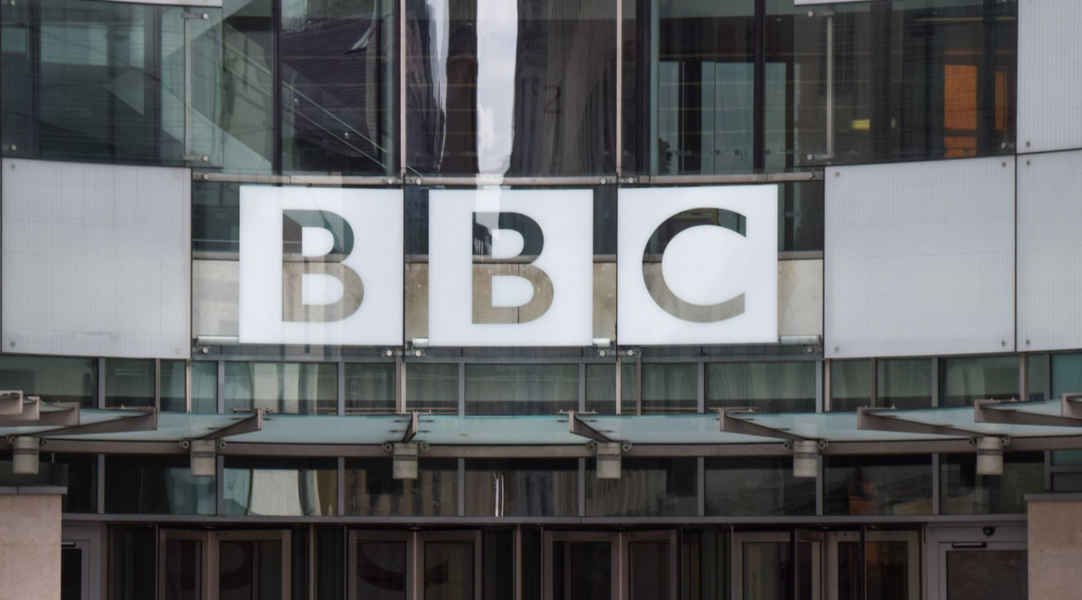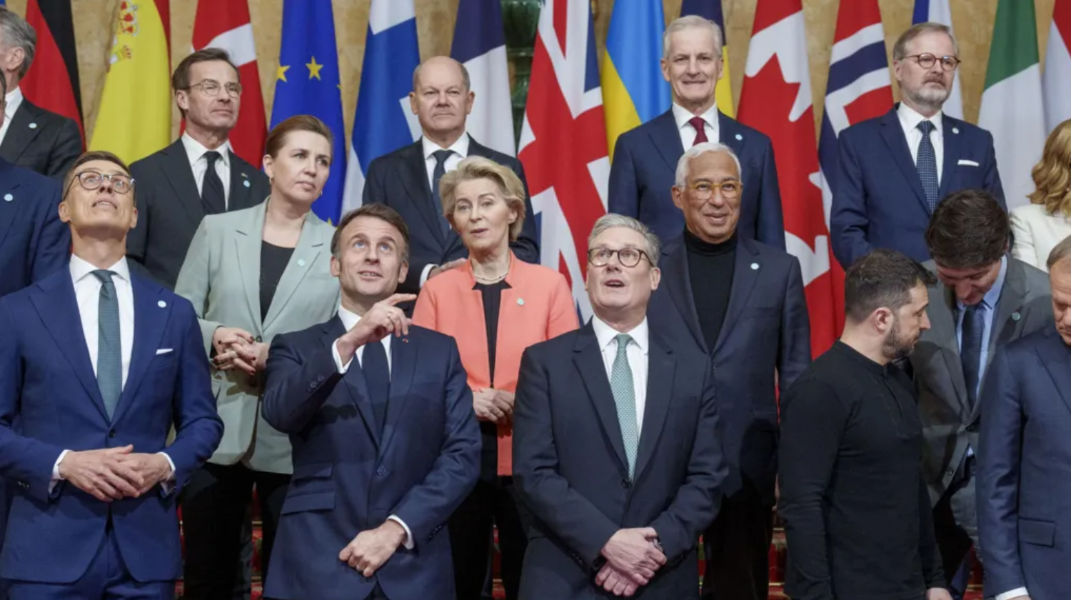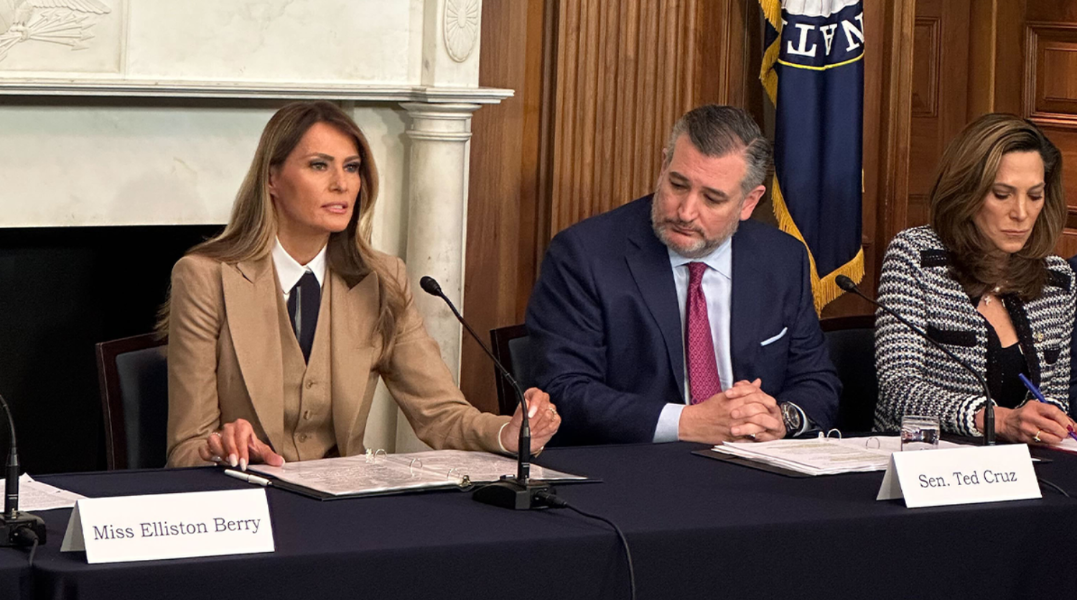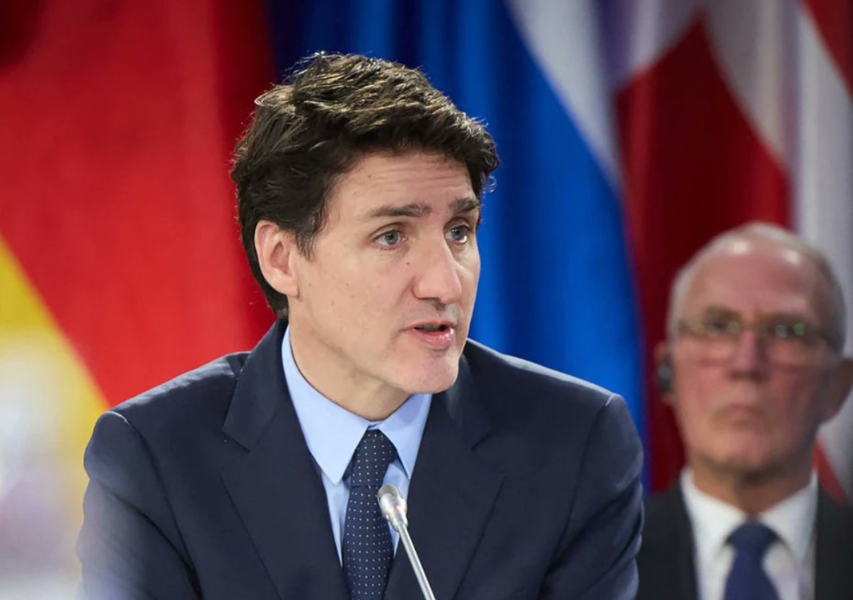-
Posts
10,702 -
Joined
-
Last visited
Content Type
Events
Forums
Downloads
Quizzes
Gallery
Blogs
Everything posted by Social Media
-
NASA astronaut Butch Wilmore, who has been stranded aboard the International Space Station (ISS) since June, has backed Elon Musk’s claim that the billionaire had proposed an early rescue plan that was ultimately rejected by then-President Joe Biden. Wilmore and fellow astronaut Suni Williams initially embarked on what was meant to be an eight-day mission, but their return was delayed when the Boeing Starliner spacecraft they were testing was deemed unsafe for the journey home. As their stay stretched into months, the situation became politically charged, with Musk and former President Donald Trump accusing Biden’s administration of intentionally leaving the astronauts aboard the ISS to avoid making Musk look like a hero. Musk’s assertion that the astronauts were abandoned for "political reasons" recently sparked a public clash between him and Danish astronaut Andreas Mogensen. In a Fox News interview, Musk claimed the Biden administration had neglected the stranded astronauts, but Mogensen countered, accusing him of spreading falsehoods. Mogensen noted that NASA had long planned to bring Wilmore and Williams back aboard the SpaceX Crew-9 mission, which arrived at the ISS in September with two spare seats. No alternative plan was ever officially proposed, and the delay in Crew-9’s return has been due to setbacks in preparing the Dragon spacecraft for Crew-10, now scheduled for launch on March 12. NASA has also stressed that extended astronaut stays in space are not uncommon. In 2023, astronaut Frank Rubio spent over a year on the ISS after a meteoroid damaged his return vessel, a Russian Soyuz spacecraft. Similarly, following the 2003 Columbia disaster, NASA suspended shuttle flights for two years, forcing astronauts to rely on Soyuz and prolong their missions. Musk’s comments have drawn criticism from the space community, particularly after he used a slur for people with intellectual disabilities in response to Mogensen. Former NASA astronauts Scott and Mark Kelly publicly defended Mogensen and condemned Musk’s remarks. “Obviously, we’ve heard some of these different things that have been said,” Wilmore commented. “We have the utmost respect for Mr. Musk, and obviously respect and admiration for our president of the United States, Donald Trump. We appreciate them… and we’re thankful that they are in the positions they’re in.” Wilmore’s statement comes at a time when NASA’s leadership is facing scrutiny over its shifting rhetoric. Acting NASA administrator Janet Petro recently raised eyebrows with remarks that echoed Trump’s political slogan, stating that the agency aimed to put "America first" in its space endeavors. “We’re going to be putting America first, we’re making America proud, we’re doing this for the U.S. citizens,” she said, just before a private Moon lander touched down on Sunday. The remark marked a departure from NASA’s long-standing philosophy of conducting space exploration “for all mankind.” As the situation continues to unfold, Wilmore and Williams remain aboard the ISS, awaiting their long-delayed return home. Based on a report by AP 2025-03-06 Related Topic: Elon Musk Claims Biden Administration Delayed NASA Astronauts’ Return for Political Gain
-
Egyptian President Abdel-Fattah el-Sissi has expressed his firm belief that U.S. President Donald Trump has the capability to broker peace in the Middle East. His statement came as Egypt unveiled a $20 billion proposal aimed at rebuilding war-torn Gaza, an initiative backed by several Arab nations. The proposal was presented during a summit of Arab leaders in Cairo, positioning itself as an alternative to Trump’s controversial plan, which suggested evacuating Gaza’s more than 2 million residents and redeveloping the enclave under U.S. administration. Trump’s idea, which involved transforming Gaza into a luxurious “Riviera,” faced strong criticism, with many accusing it of attempting “ethnic cleansing.” The U.S. administration had implied that Palestinians would be relocated to Egypt and Jordan, raising concerns over whether they would ever be allowed to return to their homeland. In contrast, Egypt’s plan calls for financial contributions from oil-rich Arab nations and the international community to fund extensive reconstruction efforts over the next two years. The initiative has been well received by the Arab League, proposing the construction of 200,000 new housing units in Gaza, where approximately 70% of buildings have been damaged or destroyed due to the ongoing conflict. Despite this effort, a major obstacle remains unresolved. The cease-fire between Israel and Hamas expired over the weekend, and while fighting has not resumed, no agreement has been reached to extend the truce. The uncertainty surrounding the cease-fire adds another layer of complexity to the already fragile situation. The United Nations has expressed strong support for Egypt’s initiative. “I welcome and strongly endorse the Arab-led initiative to mobilize support for Gaza’s reconstruction, clearly expressed in this summit,” UN Secretary-General Antonio Guterres said in a statement. “The UN stands ready to fully cooperate in this endeavor.” Palestinian Authority (PA) has shown openness to Egypt’s plan, which also includes a provision for elections to be held in Gaza within a year. Hamas has not allowed elections since it took power in 2006, while PA President Mahmoud Abbas, whose faction was ousted from Gaza by Hamas, insists that his group is the only legitimate governing body capable of leading the enclave. Abbas has expressed his readiness to organize presidential and parliamentary elections. One of the major sticking points in achieving a long-term resolution is determining who will govern Gaza post-war. Israel has remained firm in its stance that Hamas must be completely removed from power and cannot return as the ruling force. All plans for Gaza fail if they do not start with a complete defeat and disarmament of Hamas. Either Hamas surrenders military and political power, or operation to do that by force are required. Senior Hamas official Sami Abu Zuhri dismissed the Arab Summit’s proposed Gaza reconstruction plan, stating: “We will not trade our weapons for reconstruction or the entry of aid.” While Hamas has rejected proposals from “external forces,” referring to Trump’s plan, Israeli Prime Minister Benjamin Netanyahu has endorsed the former president’s vision, calling it an “innovative” and “visionary” idea that should be implemented. As discussions continue, the future of Gaza remains uncertain. The success of Egypt’s reconstruction initiative depends not only on securing the necessary funding but also on resolving the political disputes that have long plagued the region. Meanwhile, all eyes remain on Trump, whose potential involvement in the peacemaking process has sparked both optimism and controversy. Based on a report by NYP | X 2025-03-06
-
BBC director-general Tim Davie has acknowledged that he lost trust in a controversial documentary about Gaza, leading to its removal from iPlayer while an internal review is conducted. Speaking before the Culture, Media and Sport select committee on Tuesday, Davie explained that concerns arose over the background of a key individual featured in the film. Shah revealed that the BBC began questioning the integrity of the film from the moment it aired. "To my shock, I think that we found that there were serious failings on both sides, on the independent production side as well, as well as on the BBC side," he admitted. The issue has drawn attention from media watchdog Ofcom, which wrote to the BBC to express "ongoing concerns" regarding the "nature and gravity" of the documentary. Shah welcomed the scrutiny. Meanwhile, the Metropolitan Police have confirmed that officers from the Counter Terrorism Command are assessing whether any police action is necessary in relation to the documentary. The controversy has also prompted criticism from the charity Campaign Against Antisemitism. In a statement, the organization accused the BBC of "marking its own homework" and argued that "no other broadcaster would be permitted this latitude, and no other regulated industry would allow this." They also called for the suspension of the BBC licence fee pending an independent investigation into the matter. The dispute over the Gaza documentary has intensified, raising questions about the BBC's editorial processes and the broader implications for its credibility as a trusted news source. Based on a report by Sky News | X 2025-03-06 Related Topics: BBC Could Face Counter-Terror Investigation Over Payments to Hamas Official’s Family BBC Admits ‘Serious Flaws’ in Gaza Documentary, Apologizes for Oversight Did BBC Pay Hamas Members To Be In Documentary? BBC Faces Fresh Backlash Over Alleged Gaza Documentary Cover-Up BBC Doc Features Son Of Hamas Leader but Fails to Disclose to Viewers
-
A growing number of private schools are shutting their doors, blaming the Labour government’s new tax policy for their financial struggles. Since the introduction of VAT on school fees on January 1, twelve independent institutions have directly linked their closures to the policy, with dozens more folding since Labour first announced the plan. Government statistics reveal that 77 private and specialist schools in England have shut down since Labour disclosed in October 2023 that VAT would be imposed on school fees within its first year in power. While some closures were attributed to pre-existing financial difficulties, four schools have explicitly cited the VAT policy as the decisive factor in their shutdowns, and eight more have announced upcoming closures due to the tax burden. St Joseph’s Preparatory School in Stoke-on-Trent closed in December, just before the VAT policy took effect. The school described its closure as an “incredibly difficult” decision, driven by the “changes coming regarding independent school funding.” Roisin Maguire, who served as headteacher for 12 years, explained that parents “simply could not manage an extra 20 per cent” on fees and predicted more school closures to come. The policy’s impact is not limited to England. In Scotland, Cedars School in Greenock shut its doors in September, describing the VAT hike as the “straw that broke the camel’s back.” Kilgraston School in Perthshire, the country’s only Catholic boarding school, also cited VAT concerns as a key reason for its closure last August, warning that the policy would worsen declining pupil numbers and further strain its already precarious financial situation, which had recorded an £860,000 deficit in the last academic year. Several schools have announced closures at the end of this academic year, attributing their financial struggles directly to the tax policy. Among them is St Hilda’s Prep School for Girls in Hertfordshire, which recently informed parents that it was consulting on a possible closure by summer. The school, which counts former Home Secretary Suella Braverman among its alumni, admitted to operating at a significant financial loss. A letter to parents highlighted a range of financial pressures, including “falling pupil numbers,” the VAT introduction on school fees from January 2025, the rising employer National Insurance contributions, and the removal of an 80 per cent business rates relief from April 2025. While some schools have not explicitly linked their closures to the VAT policy, many were already struggling with declining enrollment and financial deficits, leaving them vulnerable to the effects of the tax hike. The government has stated that around 50 private schools typically close each year, but education leaders warn that the removal of business rates relief next month will trigger another wave of shutdowns. Under the change, charitable private schools in England will have to pay full business rates on their buildings for the first time. Experts predict that smaller private schools will be most at risk, while prestigious institutions such as Eton College, which have greater financial reserves and a wealthier parent base, will be less affected. Treasury estimates suggest that the VAT policy will ultimately reduce private school enrollment by 37,000 pupils—approximately 6 per cent—many of whom will need to transition to state schools, potentially straining public education resources. Labour MP Rupa Huq recently urged the government to consider reversing the policy if the economy improves, acknowledging that the private school sector is not a “one size fits all” system. She warned that the VAT measure could ultimately “make an elitist system more elitist” by limiting access to private education to only the wealthiest families. Meanwhile, the Independent Schools Council (ISC) has launched a High Court challenge against the policy, arguing that it infringes on the human rights of some children. A judicial review hearing is scheduled for April 1-3. Julie Robinson, chief executive of the ISC, has cautioned that the policy’s impact will continue to grow in the coming months and years. Neil O’Brien, the shadow schools minister, echoed concerns about the wider consequences of the tax, stating, “Once again, we can see the deeply damaging impacts of Labour’s education tax.” He warned that the closures of independent schools would increase pressure on already overstretched state schools, making it harder for parents to secure places for their children. “There are 130,000 children with special needs being educated in the independent sector at present, and if thousands of them are taxed into the state sector, that will put a lot of pressure on special needs provision,” he said. “At the end of the day, it will be parents, pupils, and teachers in the state sector that will pay the price for Labour’s ideological attack.” As the debate over Labour’s VAT policy intensifies, private schools across the country are left grappling with rising costs and uncertainty, with many fearing they will be next to close their doors. Based on a report by The Telegraph 2025-03-06 Related Topics: Looming Crisis: Private Schools Face Closures Amid VAT Hike Top Oxfordshire Prep School to Close Amid Controversial VAT Policy on Private Education England’s Special Educational Needs Crisis: A System in Desperate Need of Reform Legal Challenge Against Private School VAT Policy Deems It Discriminatory
-
"Donald Trump is doing us a favour, if we choose to think about it that way. And we may as well look on the bright side. Otherwise, these times are too dark." These words, spoken by a diplomat from a major European country who requested anonymity, capture the uneasy mix of alarm and forced optimism sweeping through European capitals after Trump abruptly halted military aid to Ukraine on Monday. The rapid shifts in Washington's stance have left European leaders scrambling to formulate a cohesive response. Most European governments view Ukraine's struggle as a battle for the security of the entire continent, with Russia seeking to upend the Western-aligned order that has existed since the end of the Cold War. However, the continent is deeply divided on how to address the crisis. Friedrich Merz, the man likely to become Germany’s next leader, bluntly summed up the growing concern: "Washington, which has had Europe's back in terms of security and defence since World War Two, now appears not to care about the fate of Europe." This sentiment underscores the fundamental uncertainty gripping the region. The flurry of emergency summits and high-profile diplomatic meetings reflect Europe's efforts to respond effectively. The strategy is twofold. First, European leaders are determined to show Trump that they are stepping up to the challenge, as UK Prime Minister Rishi Sunak put it, by doing "the heavy lifting" to defend themselves. The hope is that this display of self-reliance will convince Trump to restore military support for Ukraine and maintain the broader US security umbrella in Europe. At the same time, European governments must prepare for the worst-case scenario—one where Trump decisively turns away from Ukraine and, potentially, from European security altogether. In such a scenario, Europe will have no choice but to rapidly enhance its own defences and increase direct support for Kyiv. The stakes are high, not only in Washington but also in Moscow. The Kremlin is closely monitoring Europe's reaction. If the continent's emergency meetings fail to produce swift and substantial results, Russia will perceive Europe as weak and divided. Moscow has already taken pleasure in what it sees as fractures in Western unity. For decades, the US has filled the gaps left by Europe's chronic underinvestment in defence. Since the Cold War, military conscription has largely been abandoned, and troop numbers have dwindled across the continent. Meanwhile, the US maintains around 100,000 troops in Europe, along with nuclear weapons under NATO’s nuclear-sharing policy. One of the most vulnerable nations in this equation is Germany, a major European power without nuclear arms of its own, which could find itself dangerously exposed if Trump withdraws American support. The coming weeks will be crucial. Europe must prove—both to Washington and to Moscow—that it can act decisively. If its leaders fail, the repercussions could extend far beyond Ukraine, reshaping the balance of power on the continent for years to come. Based on a report by BBC 2025-03-06
-
President Donald Trump has once again expressed his interest in acquiring Greenland, assuring its residents that joining the United States would bring them prosperity and security. Speaking before Congress on Tuesday, Trump described Greenland as an "incredible" place with vast potential, emphasizing its strategic importance for military defense and global security. "We will keep you safe, we will make you rich, and together, we will take Greenland to heights like you have never thought possible before," Trump declared. He pointed out that the island, though sparsely populated, is geographically significant and offers valuable resources that could benefit the United States. "It's a very small population, a very, very large piece of land, and very, very important for military security," he added. Despite Trump’s enthusiasm, polls indicate that most Greenlanders are against becoming part of the United States, although a majority support eventual independence from Denmark. Greenland, an autonomous territory of Denmark, has repeatedly been declared "not for sale" by its ruling government in Copenhagen. However, Trump remains optimistic about bringing it under U.S. control, citing its geographical position along the shortest route between Europe and North America—an essential factor for America’s ballistic missile warning system. "We need it really for international world security," Trump argued, emphasizing that U.S. interests in the Arctic are growing amid shifting geopolitical dynamics. In his address, he reaffirmed his support for the people of Greenland to decide their future, stating, "We strongly support your right to determine your own future, and if you choose, we welcome you into the United States of America." He also noted that his administration was actively working with various parties to make Greenland part of the U.S., before adding, "I think we're going to get it, one way or the other, we're gonna get it," drawing laughter from Republican lawmakers in the House chamber. Trump's remarks have further energized Greenland’s independence movement, prompting calls for Denmark to begin negotiations on severing political ties. However, Greenland’s ruling Inuit Ataqatigiit party has urged caution, refusing to rush into an independence vote following the March 11 general election, citing concerns about economic and welfare stability. Denmark, while acknowledging Greenland’s right to self-determination, has dismissed Trump's ambitions. "The future of Greenland is really for the people of Greenland to decide," Denmark’s U.N. Ambassador Christina Markus Lassen told reporters. "Independence is possible, and they have the right to self-determination." Lassen also highlighted Denmark’s ongoing cooperation with NATO and the United States on Arctic security, stressing that both nations recognize the need to strengthen defense efforts in the region. "We have a very close transatlantic bond with the United States. We've been working very closely with the U.S. on security matters related to Greenland and the Arctic for decades," she said. While Trump’s renewed push to acquire Greenland has stirred global debate, the island’s future remains in the hands of its people. Whether Greenland chooses independence, remains under Danish rule, or considers U.S. offers, its role in the evolving geopolitical landscape will continue to draw international attention. A 2019 poll showed that 67.8% of Greenlanders support independence from Denmark sometime in the next two decades. A 2025 poll showed that 84% of Greenlanders would support independence from Denmark, but 45% of the population would oppose independence if it meant a lower standard of living. Based on a report inspired by Reuters 2025-03-06
-
The UK Chancellor is preparing to implement significant cuts to welfare spending, amounting to several billion pounds, as part of an effort to balance the country's finances. These reductions, along with cuts to other government departments, are being considered ahead of the upcoming Spring Statement. The Treasury is set to present these proposed cuts to the Office for Budget Responsibility (OBR) on Wednesday. This move comes amid growing concerns that the financial buffer established in the last budget has now disappeared. According to sources, "the world has changed" since Rachel Reeves delivered her budget last October, when the OBR estimated she had £9.9 billion available to spend under her self-imposed borrowing rules. The upcoming announcement will outline major fiscal measures, including tax changes and spending cuts, aimed at ensuring compliance with these borrowing constraints. The government has reiterated its commitment to reducing debt as a proportion of the economy during this parliamentary term. It has also pledged to limit borrowing to investment purposes only, avoiding its use for day-to-day expenditures. Such fiscal rules are common among wealthy nations and are seen as a key strategy for maintaining credibility in financial markets. Reeves has firmly stated that these rules are "non-negotiable." To address the emerging budget shortfall, the Treasury is expected to introduce "politically painful" welfare reductions. These cuts are primarily aimed at curbing the significant rise in health-related benefits and are likely to be detailed further in an upcoming speech by Work and Pensions Secretary Liz Kendall. The Treasury has attributed the increased cost of government borrowing to global economic trends and geopolitical instability. When questioned about the potential impact of welfare cuts, Justice Secretary Shabana Mahmood told BBC Radio 4’s *Today* programme that the welfare budget had seen a "huge rise" and that there were "too many" young people not engaged in work, education, or training. "There's a moral case here for making sure that people who can work are able to work and there's a practical point here as well, because our current situation is unsustainable," Mahmood stated. However, she refrained from confirming whether the justice department would be affected by budget cuts, saying she was "not going to get ahead" of Treasury decisions. Reeves has previously promised a "fundamental" overhaul of the welfare system, citing growing concerns over rising expenditure on health-related benefits. Government figures show that last year, spending on sickness benefits reached £65 billion—a 25% increase from pre-pandemic levels. That amount is expected to rise to approximately £100 billion before the next general election. While some of this increase is linked to the long-term effects of Covid-19, ministers have raised concerns over the structure of the current benefits system. Under existing rules, individuals receiving universal credit must provide proof of job applications to continue receiving payments, or risk sanctions. However, those who qualify for sickness benefits often receive higher payments and are not necessarily required to look for work. Government officials argue that this disparity creates incentives for some individuals to "game the system," further exacerbating the financial burden on the state. As the Treasury moves forward with its plans, the debate over the future of welfare spending is set to intensify. Based on a report by BBC 2025-03-06
-

Pai's Big Bust: 7 Tourists Nabbed for Public Cannabis Use
Social Media replied to snoop1130's topic in Chiang Mai
@SMIAI another of your posts removed for flaming and trolling. A link was supplied please take note. -

BREAKING NEWS Watch Live: Trump to deliver address to Congress
Social Media posted a topic in World News
President Trump is delivering an address to a joint session of Congress on Tuesday where he's expected to lay out his agenda for his second administration. This marks the first time the president will address both chambers of Congress since he took office and comes on the same day 25% tariffs against Canada and Mexico went into effect. China was also hit with a second 10% tariff on U.S. exports. Based on a report by Face the Nation 2025-03-05 -
Elon Musk has accused the Biden administration of intentionally delaying the return of two NASA astronauts from space for political reasons, alleging that officials wanted to prevent former President Donald Trump from receiving credit. During an appearance on *The Joe Rogan Experience* podcast, Musk claimed that the White House rejected his offer to bring astronauts Sunita Williams and Barry Wilmore home early. According to Musk, the administration intentionally "pushed the return date past the inauguration date" to avoid helping Trump's image. "There's no way that they're gonna make anyone who's supporting Trump look good," Musk said. MUSK: We offered to bring them back early. This offer was rejected by Biden. ROGAN: Why? MUSK: For political reasons. They pushed the return date back past the Inauguration. Elon Musk tells Joe Rogan how Biden played politics with the lives of stranded American astronauts. "People say, like, 'Oh, Elon's making it up. The Biden administration wasn't against SpaceX,'" Musk told Rogan. "I'm like, bro, the Department of Justice had a massive lawsuit against SpaceX for not hiring asylum seekers, even though it is illegal for us to hire anyone who is not a permanent resident." The lawsuit was quietly dismissed just weeks ago, without an explanation from the DOJ. Musk's comments on *The Joe Rogan Experience* were not the first time he suggested politics played a role in delaying Williams and Wilmore’s return. In a recent Fox News interview with Trump, he made similar allegations about the Biden administration interfering with NASA’s decision. Williams and Wilmore were originally scheduled to spend only eight days on the International Space Station after their June 6 launch aboard the Boeing Starliner. However, technical issues with the spacecraft forced NASA to repeatedly postpone their return, citing safety concerns. NASA Administrator Bill Nelson dismissed any suggestion that politics influenced the decision. "I can tell you unequivocally, from a personal standpoint, that politics has not played any part in this decision. It absolutely has nothing to do with it," Nelson said last August. Williams and Wilmore also pushed back against Musk’s claims in a recent *Good Morning America* interview. When asked about the suggestion that political motives were involved, Wilmore responded: "Political reasons — I have not heard that. I'm not sure that that could be the case based on what I know." He also rejected the notion that they were "stranded" in space, saying: "That's not how we feel." The astronauts are now expected to return to Earth around March 19 or 20 aboard SpaceX's Crew-9 flight, meaning they will have spent over nine months in space. Musk told Rogan that only a SpaceX spacecraft is capable of bringing them back safely. "There isn't anyone else who can do it," he said. "The SpaceX Dragon spacecraft is the only one that is considered safe enough to bring them back." NASA has not yet publicly responded to Musk’s latest remarks. Based on a report by NYP 2025-03-05
-
Keir Starmer has defended his approach to addressing the Channel migrant crisis, even as the number of small boat crossings has risen by 20 percent compared to last year. At the same time, Downing Street has indicated that the Prime Minister is unlikely to accept a request from French mayors to visit their beaches in person. According to the latest figures from the Home Office, 592 migrants arrived in the UK on Sunday after making the perilous journey across the Channel in 11 small boats. This marks the highest single-day total so far in 2025 and brings the overall number of arrivals for the year to 2,716. The figure is 20 percent higher than the 2,255 arrivals recorded at the same point in 2024 but remains 8 percent lower than the 2,953 seen by this time in 2023. Previously, the highest number of arrivals in a single day this year was 260, recorded on January 13. No.10 has pushed back against accusations that the Prime Minister has failed in his pre-election pledge to "smash" the people-smuggling gangs that facilitate these dangerous crossings. A spokesperson for Sir Keir Starmer emphasized that there were "no quick fixes" to the issue of illegal migration and stated that Labour had inherited an asylum system "in chaos" from the previous Conservative government. Despite calls from French officials for Sir Keir to personally assess the situation at the beaches where migrants embark on their journeys, Downing Street signaled that this was unlikely. Stephane Pinto, the mayor of Ambleteuse, urged the Prime Minister to "come and look at our beaches," warning that measures needed to be put in place to prevent more deaths. Philippe Mignonet, the deputy mayor of Calais, echoed this sentiment, stating that it was time for Sir Keir to see the situation firsthand. However, when asked whether the Prime Minister would accept the invitation, his official spokesperson pointed to Home Secretary Yvette Cooper’s visit to the region last month. "The Home Secretary last week became the first British home secretary to visit the French coast in five years to meet her French counterpart," the spokesperson stated. "They agreed to ramp up our joint efforts to smash people-smuggling gangs." The spokesperson also outlined new measures being implemented as part of an extended agreement with France. These include the creation of a specialist intelligence unit based in Dunkirk, which will focus on tracking and prosecuting people smugglers, as well as a new policing unit equipped with enhanced enforcement powers, modeled after those used during the Paris Olympics. Additionally, more training is being provided for drone pilots to enhance surveillance and intercept boats before they reach the sea. "The Prime Minister will obviously consider the invitations in the usual way, but we are committed to working with France as our closest partner when it comes to tackling illegal migration," the spokesperson said. "We work hand-in-glove every day to tackle these gangs, and we will continue to do so." In response to concerns that Sir Keir’s plan to curb Channel crossings was not yielding results—particularly given Sunday’s spike in arrivals—his spokesman insisted that the government was taking decisive action. "This government is focused on taking the practical steps to deal with the chaos of the asylum system that we inherited from the previous government," he said. He highlighted several initiatives, including the establishment of the new Border Security Command, an increase in enforcement resources leading to a 24 percent rise in returns, and a 38 percent increase in illegal working arrests. He also noted that the removal of foreign national offenders had risen by 21 percent and that the UK had conducted the four largest returns charter flights in its history. "We're taking the measures that will ultimately deter and smash the people-smuggling gangs that have been plying this illegal trade," the spokesperson added. "We're extending a deal with France to step up our work with the French to further smash the gangs and stop these small boat crossings." Despite the rising number of crossings, the government maintains that its strategy will deliver results in the long term, as it works with French authorities to disrupt the operations of people-smuggling networks. Based on a report by Daily Mail 2025-03-05
-
Britain has distanced itself from French President Emmanuel Macron’s proposal for a one-month ceasefire between Russia and Ukraine, despite his claims that both nations were advocating for the truce. Macron announced on Sunday that France and Britain were pushing for a four-week pause in fighting “in the air, at sea, and on energy infrastructure,” though it would not initially extend to ground combat. However, Kyiv has expressed concerns about any ceasefire that lacks security guarantees. On Monday, a British official clarified that no agreement had been reached on Macron’s proposed truce. “There are various options on the table, subject to further discussions with the US and European partners, but a one-month truce has not been agreed,” the official told the *Financial Times.* France has maintained that a temporary ceasefire would be a test of Russian President Vladimir Putin’s sincerity in wanting to end the war. French Foreign Minister Jean-Noël Barrot defended the plan, stating on *France Inter* radio that a one-month truce “would allow to prove the good will of Vladimir Putin if he commits to a truce.” He added, “And it’s then that real peace negotiations would start. We want a solid peace and a durable peace.” Barrot emphasized that this initial truce would be a way to assess whether Russia is genuinely willing to end the conflict. However, he also specified that the proposal does not require Russian troops to withdraw from occupied Ukrainian territory during the ceasefire period. His remarks followed a summit in London, where European leaders reaffirmed their support for Ukraine after a tense exchange between former US President Donald Trump and Ukrainian President Volodymyr Zelensky. Macron revealed his ceasefire plan during an interview with *Le Figaro* on his flight back from the London summit. The publication noted that Macron does not trust any ceasefire agreement brokered between the US and Russia, believing that Putin’s true aim is to humiliate Ukraine by demilitarizing it. Instead, Macron and UK Prime Minister Sir Keir Starmer have suggested a four-week ceasefire that would not involve ground forces. The French president explained that the advantage of this type of ceasefire is that it can be easily measured. “You have to bear in mind that the front line today is the equivalent of the Paris-Budapest line (in terms of distance). In the event of a ceasefire, it would be very difficult to check that the front was being respected,” Macron said. He added that European peacekeeping troops would not be deployed immediately but could be introduced later as negotiations progress. “There will be no European troops on Ukrainian soil in the coming weeks. The question is how we use this time to try to obtain an accessible truce, with negotiations that will take several weeks and then, once peace has been signed, a deployment.” However, the UK government has downplayed Macron’s remarks. Armed Forces Minister Luke Pollard stated that there was no formal agreement on the truce. “No agreement has been made on what a truce looks like,” he told *Times Radio.* “But we are working together with France and our European allies to look at what is the path to how... we create a lasting and durable peace in Ukraine.” Pollard stressed the importance of US involvement in any peace effort, saying, “We think it essential there is a US backstop to make this work.” When pressed further, he maintained, “At the moment we’ve pledged that the UK will step up as part of that multinational movement. We’re still working through those negotiations at the moment. I don’t think it’s right to get into making an announcement before we’ve obviously reached the deal, which I obviously can’t do… If the US isn’t involved, we will struggle to get that durable peace.” UK government sources have suggested that Macron’s comments were premature, reiterating that multiple options remain under discussion with the US and European allies. Meanwhile, both the UK and France are working on forming a “Europe Plus” coalition to safeguard Ukraine in the event of a peace deal. Canada and Turkey are among the nations involved in talks to join what has been described as Starmer’s “coalition of the willing,” which could involve sending troops to Ukraine to help enforce any agreement. This plan is reportedly part of the UK and France’s response to private requests made by Trump after his highly publicized confrontation with Zelensky in the Oval Office last Friday, *Bloomberg* reports. As diplomatic negotiations continue, the question remains whether a temporary ceasefire can serve as a meaningful step toward lasting peace—or if it would merely give Russia an opportunity to strengthen its position. Based on a report by The Telegraph 2025-03-05
-
First Lady Melania Trump took aim at congressional Democrats on Monday during a Capitol Hill roundtable focused on online safety and the dangers of non-consensual intimate imagery. The discussion centered around the "Take It Down Act," a proposed bill that would make it a crime to share such content online without permission. Though Melania has largely remained out of the public eye since the inauguration, her presence at the roundtable reaffirmed her commitment to online safety, a cause she previously championed through her "Be Best" initiative during Donald Trump's first term. During the discussion, the first lady commended Senators Amy Klobuchar, a Democrat from Minnesota, and Ted Cruz, a Republican from Texas, for working across party lines to move the legislation forward. The bill successfully passed the Senate in February. However, she did not hold back her disappointment over the lack of Democratic attendance at the roundtable. "I was heartened to learn that Senator Cruz and Senator Klobuchar unified to prioritize this fundamental matter, but I must admit, however, I expected to see more Democrat leaders here today to address this serious issue. Surely, as adults we can prioritize America's children ahead of partisan politics," Melania stated. Although the bill is co-sponsored by Klobuchar, it remains unclear whether she was present at the event. Newsweek reached out to her office for comment. The only Democratic lawmaker reported to have attended the roundtable was Representative Ro Khanna of California, according to the Daily Mail. Cruz, who was actively engaged in the discussion, spoke about the personal story that inspired the legislation—an encounter with Elliston Berry and her mother, who spent nearly a year trying to remove an AI-generated explicit image from Snapchat. The "Take It Down Act" aims to protect victims from both real and digitally altered intimate images, addressing the growing threat of deepfake technology. As of now, the Republican-led House has not yet moved forward with the measure. However, Melania’s vocal support could increase its chances of passing and ultimately being signed into law by President Trump. The first lady is set to return to the Capitol on Tuesday to attend her husband's primetime address to a joint session of Congress. Based on a report by Newsweek 2025-03-05
-
Brazilian tattoo artist Diabao Praddo, widely known as Human Satan, has once again pushed the boundaries of body modification by amputating two fingers from his left hand to create an alien-like claw. The 50-year-old shared images of the drastic transformation on social media, revealing his hand now consists of just a thumb and two remaining fingers. Praddo, who legally changed his name from Michel to Diabao—Portuguese for Devil—underwent the procedure on March 1. “All done,” he wrote to his followers, marking yet another step in his lifelong journey of extreme modifications. This isn’t the first time he has altered his hands; he previously removed the little and ring fingers from his right hand to achieve a similar claw-like appearance. Initially, he hesitated to proceed, fearing it might hinder his career as a tattoo artist. However, he ultimately decided it wouldn’t stop him. Reflecting on the adjustment period, he admitted, “In the beginning, it was quite difficult, but it didn’t take long for me to get back to tattooing almost normally.” He also described experiencing occasional pain and phantom sensations, which sometimes caused confusion in both work and daily life. Praddo is no stranger to extreme modifications. With over 100 alterations, including full-body tattoos, a split tongue, and multiple subdermal implants, he has drastically transformed his appearance. One of his most controversial procedures involved amputating and consuming his own nipple. He also holds a Guinness World Record for having the most subdermal horn implants on his head, boasting an impressive 33. Among his more radical modifications, Praddo is one of only three people worldwide to have undergone a highly risky procedure to remove the tip of his nose. Additionally, he has multiple forehead implants and four prominent horns protruding from either side of his head. His dedication to altering his body has earned him international recognition. In 2023, he secured a Guinness World Record, surpassing another contender with 18 horn implants. The verification took place on the Italian TV show Lo Show Dei Record, an experience Praddo described as deeply emotional. “At several moments, I was emotional, with tears in my eyes, as I went over my life. An experience that I will cherish forever in my heart and memory,” he said. Despite already holding a world record, Praddo has no plans to stop modifying his body. His goal is to claim the title of the world’s most modified man. He is supported in his journey by his wife, Carol Praddo—nicknamed Mulher Demonia (Demon Woman)—who is also heavily modified and specializes in body transformations. She has played a key role in helping him achieve his distinctive look. A professional tattoo artist for 25 years, Praddo specializes in blackwork and brutal tattoos, covering a significant portion of his body in ink. “Most of my tattoos are done by professionals I’ve paid, but my wife is an expert in body modifications. The idea is for me to become her masterpiece when it comes to tattooing,” he explained. His high pain tolerance has allowed him to endure numerous painful procedures. “Actually, I have a good resistance to pain. I don’t think anything is too painful. I suffer a lot more in the post-procedure stage than during the actual process,” he said. However, he acknowledged that some modifications would be nearly impossible without anesthesia. For Praddo, pain is simply part of the transformation. “If I have to feel pain to achieve what I want, for sure I will face it,” he declared, reinforcing his commitment to his ever-evolving appearance. Based on a report by Daily Mail 2025-03-05
-
Channel 4 News is facing renewed criticism after it was revealed that its award-winning coverage of the Israel-Hamas war included footage of the son of a senior Hamas official without disclosing his identity. The controversy follows the BBC’s decision to retract a documentary that also featured the teenager due to "serious flaws" in its production. Watch the son of a Hamas minister push a lie that Israel chose his fate. No Abdullah. Your dad and his Hamas mates did. And Channel 4 happily share this scripted junk as news. Abdullah was first introduced to Channel 4 News viewers in November 2023 under the name “Abdullah Abu Shamala.” He was shown touring the ruins of Khan Younis after an Israeli airstrike, while a man later identified as his uncle, Khalil Abu Shammala, was presented as his father. Khalil Abu Shammala was previously the director of Al Dameer, an NGO that advocates for Palestinian prisoners in Israeli jails. Collier argued that the segment was misleading, as it implied Israeli strikes were targeting civilian areas with no Hamas presence. “Yet moments later, the audience meets a family now known to be led by a Hamas minister. This crucial detail was withheld, creating the false impression of an ordinary Palestinian household,” he said. In a later broadcast on December 11, 2023, Abdullah appeared again, claiming to be searching for food and water while describing his situation as “living hell on earth.” By April 2024, Channel 4 News reported that Abdullah and his family had fled to Rafah, where he was selling sweets on the street to survive. His father’s position within Hamas was still not disclosed. During that broadcast, Kermani stated: “We began following 13-year-old Abdullah shortly after Israel’s war on Gaza began. Forced to flee again and again, he’s now in Rafah, selling sweets to try and help support his family.” Abdullah, standing at a makeshift stall with a few chocolate bars, said: “I never thought I would sell chocolate to make a living. I used to study in a professional school. Now there’s no school. There’s nothing, just selling stuff for living to make it out of this hell we are in.” He also expressed frustration, blaming Israel for his situation: “From a student to a seller. Why? Why? I didn’t choose this fate. Nobody chose this fate. Israel chose this fate for me.” In response to the controversy, ITN, which produces Channel 4 News, defended its coverage, stating that no payments were made to Abdullah’s family and rejecting claims that his statements were scripted. ITN also asserted that Abdullah did not appear in the specific reports that won Bafta, RTS, or International Emmy awards, though RTS has confirmed its award is now under review. A Channel 4 News spokesperson stated that Abdullah was sourced through an experienced journalist who had also worked for other major global media outlets. The spokesperson acknowledged that the boy’s identity was initially miscommunicated due to an error by a local fixer and that the programme ceased featuring him after learning of his father’s position in Hamas. Channel 4 News said that once its senior leadership became aware of the situation, they acted to provide additional context to archived reports. Social media posts that could not be updated were removed as part of “standard editorial procedures.” The changes were made on February 20, 2025. With increasing scrutiny on its reporting, Channel 4 News now faces pressure to retract its coverage featuring Abdullah, while its journalism awards remain in question. Based on a report by Daily Telegraph 2025-03-05 Related Topics: BBC Could Face Counter-Terror Investigation Over Payments to Hamas Official’s Family BBC Admits ‘Serious Flaws’ in Gaza Documentary, Apologizes for Oversight Did BBC Pay Hamas Members To Be In Documentary? BBC Faces Fresh Backlash Over Alleged Gaza Documentary Cover-Up BBC Doc Features Son Of Hamas Leader but Fails to Disclose to Viewers
-
Meghan Markle is embracing the learning process as she navigates the launch of her lifestyle brand, *As Ever*. In a rare interview with *People* published Monday, the Duchess of Sussex, 43, acknowledged that the journey has not been without its difficulties, admitting to making “mistakes” along the way. Meghan Markle is BANNED from selling clothes under ‘As Ever’ brand due to mix-up with Chinese ‘fast fashion’ firm “There are tons of twists and turns — even with the name,” Markle told *People*. “I was figuring it out in real time.” Markle first announced *American Riviera Orchard* in March 2024, but by November, her team had requested a three-month extension from the USPTO to continue the trademark process. However, in February 2025, she rebranded the business as *As Ever*, marking a fresh start for the venture. While the official launch date of *As Ever* remains unclear, Markle’s brand is expected to offer a range of products, including a signature jam. Speculation suggests that the launch may coincide with the release of her upcoming Netflix series, *With Love, Meghan*, which premieres Tuesday. Despite the rebranding efforts, controversy has followed *As Ever*. A small town in Mallorca, Spain, accused Markle of using a logo similar to its traditional coat of arms. Additionally, a New York-based clothing company, also named *As Ever*, raised concerns over the moniker of her brand. In her interview, Markle also shared insights into the personal inspiration behind her brand’s website, which features a photograph of her and her daughter, Princess Lilibet, 3. “Being able to have my own little girl, as I’ve spent so much of my life championing the rights of girls and women, and to be able to see this as a multigenerational story — Archie is of course included in that, my husband is of course included in that — but I love the heritage feeling of it and knowing this is something that I can create in front of my daughter and teach her what it’s like to be a working mom,” she explained. “This is something that hopefully can be part of her legacy too.” Markle, a former *Suits* actress, also made it clear that she does not consider herself an influencer. “I see myself as an entrepreneur and a female founder,” she said. “And if the brand ends up influential, then that’s great.” As Markle continues to navigate the world of business, she remains focused on building *As Ever* into something meaningful, despite the obstacles she has faced. Based on a report by NYP 2025-03-05
-
A recent report has revealed that the Home Office misclassified hundreds of child asylum seekers as adults last year, resulting in them being housed in hotels and detention centers alongside adults. The report comes amid a surge in small boat crossings, with 592 migrants arriving on Sunday alone—the highest daily total so far this year. The overall number of small boat arrivals in 2024 has now reached 2,255, a 20% increase compared to the same period last year. Approximately one in six migrants crossing the Channel are unaccompanied children. Disturbing new evidence from French authorities suggests that people smugglers are launching dinghies from as far south as Dieppe, Normandy—80 miles from Calais—illustrating the increasingly dangerous routes migrants are taking to reach the UK. A coalition of more than 100 organizations, known as the Refugee and Migrant Children’s Consortium, conducted the study and found that more than half of asylum age assessments last year incorrectly classified individuals as adults. Data from 63 local authorities in England and Scotland revealed 603 cases where agencies suspected young migrants had been wrongly placed in adult accommodations or detention centers following Home Office age assessments. These assessments have faced criticism for relying too heavily on an individual’s physical appearance rather than a thorough evaluation of their age. Of the 493 cases where a determination was reached, 262 individuals were ultimately found to be children. The remaining cases involved individuals assessed as adults, those challenging their classification, or those who had been relocated to a different local authority, requiring a reassessment. In some cases, the outcomes remained unclear due to ongoing assessments or a lack of recorded data. The report highlighted serious risks faced by misclassified children, with some as young as 14 being housed alongside adults in hotels. This left them vulnerable to exploitation and abuse, with incidents of violence and sexual assault reported in several hotels where misidentified minors were placed. Additionally, the report revealed that some children were wrongly convicted of crimes related to illegal entry into the UK due to being classified as adults. Under-18s are exempt from these offenses, yet between June 2022 and September 2024, 510 people who arrived via small boats were charged with illegal entry. This included 26 cases where children wrongly identified as adults faced criminal charges, and at least 16 children were detained in adult prisons, exposing them to significant risk. Many asylum seekers lack documentation to verify their age, making assessments challenging. The report found that Home Office caseworkers and Border Force officers increasingly conducted age assessments instead of local authorities, despite local authorities using more thorough Merton-compliant assessments. These evaluations involve in-depth background research and analysis, differing significantly from the rapid initial assessments conducted at the border. The previous government had changed the law to introduce scientific methods for age verification, including MRI scans of knees and collar bones, as well as X-rays of wisdom teeth, wrists, and hands. However, the current government has not yet implemented these measures and has not confirmed whether they intend to do so. The report stressed that unaccompanied children often arrive in the UK after experiencing severe trauma, having fled war, violence, and persecution, only to be subjected to further distress by being misclassified. Children who are not believed about their age face a lack of support, are deprived of education, and miss out on the protections afforded to minors. Adil, one of the children wrongly classified as an adult, shared his experience: "When I told them I was 16 years old, they didn’t accept my age. They said no, you haven’t got any evidence. I was in a very critical situation; we had been through many problems. They said you have to show me your evidence. I said I hadn’t got anything, but I can get it if you give me some time. But they put me straight away into a hotel. I went there and spoke with the manager. I said the age which the Home Office has chosen for me is not mine. The place where I was living, the people were all adults. That situation can put me in trouble.” He continued, "I was waiting for two months. After that, they sent some social workers. There were many people in the same situation. When the social worker came, I spoke with them. I said it’s not my real age. In our country, it’s a war-afflicted country, it’s not the same as in the UK. We look different. It’s all about the situation, it doesn’t mean we are 24 or 25. They asked me many questions, then they accepted my age and put me with young people. Many people are facing this, and I want to avoid this happening to other young people.” Meanwhile, court documents revealed that France has agreed to take back two children, aged six and nine, who were separated from their parents during a small boat crossing last July. The parents attempted to use the European Convention on Human Rights to secure their own transfer to the UK, but a High Court judge ruled that the children should instead be reunited with their parents in France. This marks the first known case of such an agreement since Brexit, which ended EU family reunion provisions in 2020. A Home Office spokesperson defended the agency’s approach, stating, "We will never compromise on border security. We have robust processes in place to verify and assess an individual’s age where there is doubt and where there is no documentary evidence, including the National Age Assessment Board, of a team of trained social workers whose task is to conduct full age assessments. We continue to review all options to improve age assessment." The findings of the report have raised serious concerns about the treatment of child asylum seekers in the UK and have called into question the accuracy of the Home Office’s assessment procedures. Based on a report by The Times 2025-03-05
-
A woman who sought more than £400,000 in compensation for an arm injury has had her claim dismissed after surveillance footage revealed her engaging in sports and handling strong dogs. Hazel Boyd, who runs a dog daycare business, claimed she had suffered a severe arm injury after being thrown from a horse while working as a stablehand. However, a High Court judge ruled that she was guilty of “dishonest exaggeration” after video evidence showed her playing rugby and football, as well as walking a large husky using her supposedly injured arm. Boyd stated that her injury occurred in 2020 when she was thrown from a three-year-old thoroughbred named Foxy while working for trainer Debbie Hughes at Ty’r Heol Farm in Llanelli. She alleged that the horse was dangerous and that the accident left her with a permanently disabled right arm, preventing her from continuing her riding career. Seeking damages, she claimed up to £368,000 in lost earnings, in addition to other compensation, despite having since established a dog daycare business. However, Hughes challenged the claim, arguing that Boyd had significantly exaggerated her disability. Social media posts and surveillance footage were presented in court, revealing Boyd participating in football and rugby training, as well as walking multiple dogs, including a strong husky, for extended periods. “A husky is a large dog,” barrister Georgina Crawford told the court, pointing out that Boyd was using her allegedly disabled arm to control the animal. The court was also shown images of Boyd playing rugby. Boyd, a former member of the Llantwit Fardre Pink Rhinos women’s rugby team, defended herself by claiming she had only participated in non-contact training to aid her recovery. “It shows me training, not playing rugby. There’s a difference. Training is non-contact; it’s tag,” she stated. Despite her arguments, Mr Justice Cotter ruled against Boyd, stating that she had failed to provide convincing evidence that Foxy had been spooked by a threat, rather than simply reacting to something on the gallop surface. He also found that she had deliberately exaggerated her symptoms and level of disability when consulting medical experts. However, he stopped short of declaring her actions as “fundamental dishonesty,” which would have resulted in her having to cover the defendant’s legal costs. Although Boyd’s claim was dismissed, personal injury claimants are generally protected from paying the defendant’s legal costs unless they are found to have acted fraudulently. As a result, despite the judge ruling that Boyd had “consciously exaggerated” her condition, she will not face additional financial penalties. Based on a report by The Times 2025-03-05
-
A bill that sought to prohibit transgender women and girls from competing in school sports designated for female athletes failed to move forward in the Senate on Monday night. The legislation, which had been a key talking point for Republicans during last year’s elections, was blocked as Senate Democrats remained unified in opposition. The test vote on the bill ended in a 51-45 tally, falling short of the 60 votes required for advancement. Senators largely voted along party lines, signaling the deep divide on the issue. The proposed legislation aimed to define Title IX protections strictly according to “a person’s reproductive biology and genetics at birth.” Republicans have repeatedly highlighted this matter as a fairness issue in women’s athletics. President Donald Trump recently signed an executive order granting federal agencies broad authority to enforce Title IX in line with his administration’s interpretation, which defines “sex” as the gender assigned at birth. However, congressional Republicans have been pushing to cement this stance into law by amending the 1972 Title IX statute, which safeguards individuals from sex-based discrimination in federally funded education programs. “Across the country, we have seen men—biological men who identify as women—occupy spots and win medals in athletic competitions meant for actual women,” said Senate Majority Leader John Thune, R-S.D. “This is a matter of fairness and equality.” A similar bill had already passed in the House with only two Democrats voting in favor, but its failure in the Senate underscored the uphill battle for any legislation perceived as targeting LGBTQ individuals. Democrats criticized the bill as an unnecessary distraction from more urgent national concerns and an overstep of federal authority into local school policies. “What Republicans are doing today is inventing a problem to stir up a culture war and divide people against each other,” said Sen. Brian Schatz, D-Hawaii, during a floor speech. Sen. Tammy Baldwin, D-Wis., argued that decisions regarding transgender participation in sports should be left to sports leagues rather than dictated by broad federal mandates. “This is a decision for sports leagues to thoughtfully craft policy that actually takes seriously what is best for all players, not blanket mandates that will undoubtedly have unintended consequences for the safety of all students,” she stated. Despite the Senate setback, Republicans appear poised to continue pressing the issue. Trump’s campaign found that the topic resonated with voters across the political spectrum. More than half of those surveyed by AP VoteCast indicated they believed that support for transgender rights in government and society had gone too far. Following Trump’s executive order, the NCAA revised its policies, restricting participation in women’s sports to athletes who were assigned female at birth. Meanwhile, in Minnesota, the state House prepared for a similar debate on a GOP-backed bill that would apply to primary and secondary schools. Ahead of the debate, supporters of the measure rallied at the state Capitol in St. Paul, emphasizing their stance that the bill was about safeguarding opportunities for female athletes and ensuring a fair playing field in sports. Conversely, Democrats and LGBTQ+ advocacy groups condemned the bill as discriminatory. Kelley Robinson, president of the Human Rights Campaign, denounced the measure, stating, “Every child should have the opportunity to experience the simple joys of being young and making memories with their friends. But bills like these send the message that transgender kids don’t deserve the same opportunities to thrive as their peers simply because of who they are.” Based on a report by NYP 2025-03-05
-
Ukraine remains committed to working closely with the United States despite the recent announcement that US aid to Kyiv is being put on hold. Prime Minister Denys Shmyhal reaffirmed the importance of American support, stating that military aid from Washington has been "critical" and has saved countless Ukrainian lives. He also emphasized Ukraine's readiness to finalize an agreement granting the US access to the country's rare earth mineral deposits, saying, "We are ready to sign." Shmyhal expressed gratitude for America's steadfast support over the past three years and extended his appreciation to Europe as well. He praised European Commission President Ursula von der Leyen's newly proposed defence funding plans, calling them "an important first step." Meanwhile, political tensions have emerged within Ukraine regarding President Volodymyr Zelensky’s recent visit to the White House. Oleksiy Goncharenko, a member of the opposition European Solidarity party, criticized Zelensky’s conduct during a meeting that included Donald Trump and JD Vance. Speaking to BBC Cymru, Goncharenko said, "Zelensky should have acted in a different way because it's not a kindergarten, it's not boxing. It's about the lives of millions of people." He argued that the Ukrainian leader must apologize, adding, "What is more important, the pride of President Zelensky or the lives of millions of people for whom he is responsible?" The pause in US aid is expected to have significant military implications for Ukraine. Ben Barry, a senior fellow for land warfare at the International Institute for Strategic Studies, discussed the potential consequences on BBC Radio 4’s World at One. "Intelligence has been a key part of US, UK, and Western support to Ukraine, but the US is the world’s intelligence superpower, and neither the British nor the rest of Europe could quickly fill the gap from the vast US intelligence assets," he said. Barry warned that Ukraine would be particularly affected by the absence of Patriot missile systems. "The thing that will worry Ukraine most is the non-supply of Patriot missiles, which have this unique capability to intercept incoming ballistic missiles and have more capability in this than anything that Europe’s got." He also pointed out that Europe does not supply long-range artillery or short-range ballistic missiles, further complicating Ukraine's defence strategy. Despite the pause in American aid, the UK's Chancellor Rachel Reeves reassured that the US remains the UK's closest defence and security partner. "That will continue to be the case," she said, noting that there is a "recognition across Europe that we must step up" to ensure the continent's collective security. Following his tense exchange with Donald Trump at the White House, President Zelensky acknowledged that the meeting had not gone as intended. "Our meeting in Washington, at the White House on Friday, did not go the way it was supposed to be," he wrote in a post on X. "It is regrettable that it happened this way. It is time to make things right." He reaffirmed Ukraine’s "commitment to peace," stressing that "none of us wants an endless war." Zelensky signaled Ukraine's willingness to negotiate as soon as possible, stating, "Ukraine is ready to come to the negotiating table as soon as possible to bring lasting peace closer." "Nobody wants peace more than Ukrainians. My team and I stand ready to work under President Trump’s strong leadership to get a peace that lasts," he added. "We are ready to work fast to end the war." Zelensky also hinted at possible initial steps toward peace, including a truce in the air and at sea, provided that Moscow agrees to do the same. He reiterated Kyiv's willingness to sign the US-proposed mineral deal, describing it as a "step" towards securing broader guarantees for Ukraine's security. Based on a report by BBC Live 2025-03-05
-
In a fiery press conference during his final week in office, Canadian Prime Minister Justin Trudeau condemned the new tariffs imposed by the United States, calling the move “a dumb thing to do.” He accused the US of launching “a trade war against… its closest partner and ally, its closest friend.” In response, Canada plans to impose 25% tariffs on $155 billion worth of American goods, starting with an immediate tariff on $30 billion worth of imports. Trudeau also announced that Canada will file a legal challenge at the World Trade Organization (WTO), arguing that the tariffs violate an existing free trade agreement with the US. Trudeau directly addressed the American people, making it clear that Canada did not “want this” and accusing President Donald Trump of endangering American jobs by escalating trade tensions. He reiterated that the tariffs were unjustified and unnecessary, emphasizing, “There is absolutely no justification or need for these tariffs today.” He also mentioned his past collaboration with Trump on major issues and said he expected to speak with the US president in the coming days. During the press conference, Trudeau was asked whether the tariffs amounted to an act of war. He reiterated that the US had initiated a “trade war” and warned that it would hurt both nations, particularly American families. He stressed that Canada would not allow itself to be divided over this issue, urging unity among Canadians. When asked what Trump hoped to achieve with the tariffs, Trudeau dismissed the US president’s claim that they were related to fentanyl as “bogus” and “completely false.” Instead, he argued that Trump’s real goal was to “see a total collapse of the Canadian economy,” making it easier for the US to annex Canada. He firmly rejected this notion, declaring, “Canada will never be the 51st state.” He added, “We are Canadians, we will fight, and we will win.” Trudeau also criticized Trump’s stance on the opioid crisis, asserting that Canada had already taken significant action to combat fentanyl production. He accused Trump of undermining previous agreements between the two countries and insisted that claims of Canadian inaction on the issue were “totally false.” Shortly after Trudeau’s press conference, Trump responded on social media, warning that any retaliatory tariffs from Canada would be met with an equal increase in US tariffs. Referring to Trudeau as “Governor Trudeau,” Trump appeared to continue pushing the narrative that Canada should be absorbed as a US state, a notion that Trudeau had strongly rejected. Based on a report by BBC 2025-03-05
-

US Halts Military Aid to Ukraine Amid Push for Peace Talks
Social Media replied to Social Media's topic in World News
A couple of posts removed, discussion = good. Trolling meme = lazy. -

Trump Slams Zelensky Over Grim War Outlook, Warns of Consequences
Social Media replied to Social Media's topic in World News
UPDATE: US Halts Military Aid to Ukraine Amid Push for Peace Talks -

US Halts Military Aid to Ukraine Amid Push for Peace Talks
Social Media posted a topic in World News
The United States has decided to pause military aid to Ukraine, with the White House emphasizing the need for a commitment to peace from all parties involved. "The President has been clear that he is focused on peace. We need our partners to be committed to that goal as well. We are pausing and reviewing our aid to ensure that it is contributing to a solution," a White House official told CBS News, as reported by the BBC. Reports indicate that all weapons currently in transit to Ukraine will be put on hold. Bloomberg adds that US military equipment, including weapons still at depots in Poland, will also be affected by this pause. Officials suggest that this measure is temporary and will remain in place until President Trump is satisfied that Ukraine is demonstrating a commitment to peace negotiations with Russia. The Trump administration appears to be pressing Ukrainian President Volodymyr Zelensky to accept an economic agreement regarding mineral resources and to engage in peace talks with Russia, rather than providing him with the security assurances he has requested. Instead of focusing on military support, Trump’s aides have shifted discussions toward potential "economic assurances" for Ukraine. The timing of this move is significant, occurring less than 24 hours before President Trump’s scheduled address to Congress. This address presents him with an opportunity to highlight his administration’s actions and achievements, with securing a peace deal between Ukraine and Russia being a priority he has long pursued. During an interview with Fox News, Senator JD Vance stated that the possibility of renewed negotiations remains open, but only if Ukraine is serious about peace. "Of course, the door is open," Vance said, adding, "So long as Zelensky is willing to seriously talk peace. You can't come into the Oval Office or anywhere else and refuse to even discuss the details of a peace deal." According to Vance, the core issue is Zelensky’s insistence on security guarantees before engaging in peace discussions, whereas the White House maintains that such assurances should only come after a deal is reached. "When they're willing to talk peace, I think President Trump will be the first person to pick up the phone," Vance stated. As the situation unfolds, the halt in military aid marks a major shift in US policy toward the ongoing conflict, signaling a push for diplomatic resolutions over continued military assistance. Based on a report by BBC 2025-03-04
































